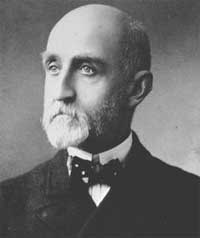A Quote by B. C. Forbes
If the World War [I] demonstrated anything it was that government ownership is fraught with the gravest dangers and usually leads to disaster. Take Britain. The two problems which have caused the greatest trouble since the war ended have been transportation and coal. The government seized both industries when the war broke out. It got them into such a hopeless mess that it does not know how to turn [In] coal; the government now realizes, it took hold of the tail of a wild animal and is afraid to let go.
Quote Topics
Afraid
Animal
Anything
Been
Both
Britain
Broke
Caused
Coal
Dangers
Disaster
Does
Ended
Fraught
Go
Got
Government
Greatest
Hold
Hopeless
How
Industries
Know
Know How
Leads
Let Go
Mess
Now
Out
Ownership
Problems
Since
Tail
Take
Them
Took
Transportation
Trouble
Turn
Two
War
Which
Wild
Wild Animal
World
World War
Related Quotes
World War Two was a world war in space. It spread from Europe to Japan, to the Soviet Union, etc. World War Two was quite different from World War One which was geographically limited to Europe. But in the case of the Gulf War, we are dealing with a war which is extremely local in space, but global in time, since it is the first 'live' war.
Having therefore no foreign establishments, either colonial or military, the ships of war of the United States, in war, will be like land birds, unable to fly far from their own shores. To provide resting places for them, where they can coal and repair, would be one of the first duties of a government proposing to itself the development of the power of the nation at sea.
The World War I, I'm a child of World War I. And I really know about the children of war. Because both my parents were both badly damaged by the war. My father, physically, and both mentally and emotionally. So, I know exactly what it's like to be brought up in an atmosphere of a continual harping on the war.
In the days of peace every precaution should be taken to insure that there are no forces making for war. Just as we now forbid the trafficking in certain drugs, in the sale of poisons, just as we forbid the making of any imprint that suggests a coin or currency, just as experience has demonstrated that men may not make profit out of certain things because of the danger of abuse, so in the gravest of all dangers laws should be passed taking from those who might gain from war or preparations for war every hope that advantage could come to them by such a calamity.
In 1897, troops from the greatest empire the world had ever seen marched down London’s mall for Queen Victoria’s diamond jubilee. Seventy years later, Britain had government health care, a government-owned car industry, massive government housing, and it was a shriveled high-unemployment socialist basket-case living off the dwindling cultural capital of its glorious past. In 1945, America emerged from the Second World War as the preeminent power on earth. Seventy years later . . . Let’s not go there.
We desire peace. However, if imperialism insists on fighting a war, we will have no alternative but to take the firm resolution to fight to the finish before going ahead with our construction. If you are afraid of war day in day out, what will you do if war eventually comes? First, I said that the East Wind is prevailing over the West Wind and war will not break out, and now I have added these explanations about the situation in case war should break out. Both possibilities have thus been taken into account.
World War II made war reputable because it was a just war. I wouldn't have missed it for anything. You know how many other just wars there have been? Not many. And the guys I served with became my brothers. If it weren't for World War II, I'd now be the garden editor of The Indianapolis Star. I wouldn't have moved away.
If Donald Trump dismantles the agreement [the "Iran nuclear deal"] won by President Barack Obama with President Hassan Rouhani and the Iranian government and people: If he dismantles that, and puts greater sanctions on Iran, then we are leading to another war; another war inspired by Israel, another war that will bring China into war, Russia into war, Europe into war. And the Western world, in this war, will be taken completely down, and a whole new world is on the horizon.
I am not sure that I know enough about the pre-history of 9/11 to agree or disagree. But I did think at the time that the [George W.] Bush administration took a number of cues from the Israeli government, not only by drawing on and intensifying anti-Arab racism, but by insisting that the attack on US government and financial buildings was an attack on "democracy" and by invoking "security at all costs" to wage war without a clear focus (why the Taliban?), and by suspending both constitutional rights and the regular protocol for congressional approval for declaring war.

































